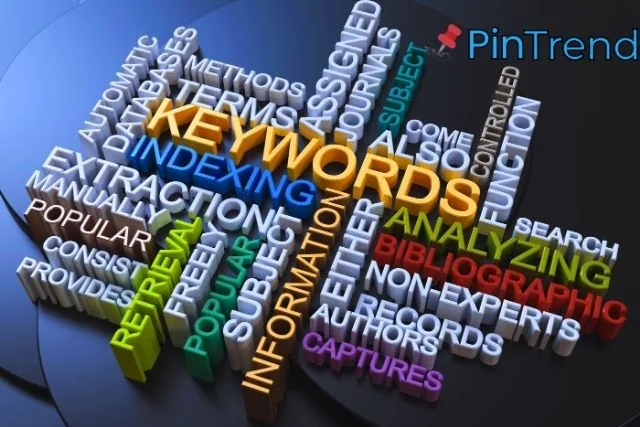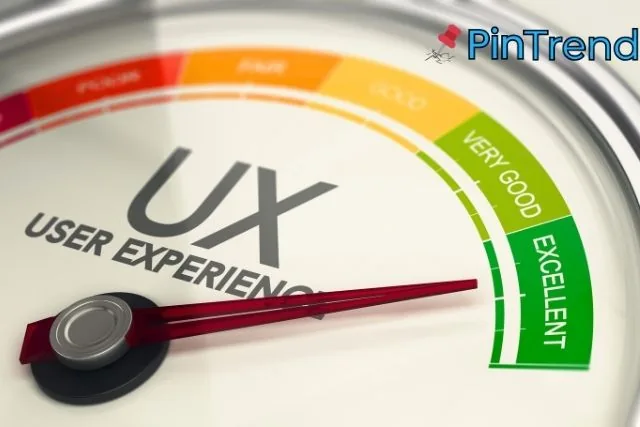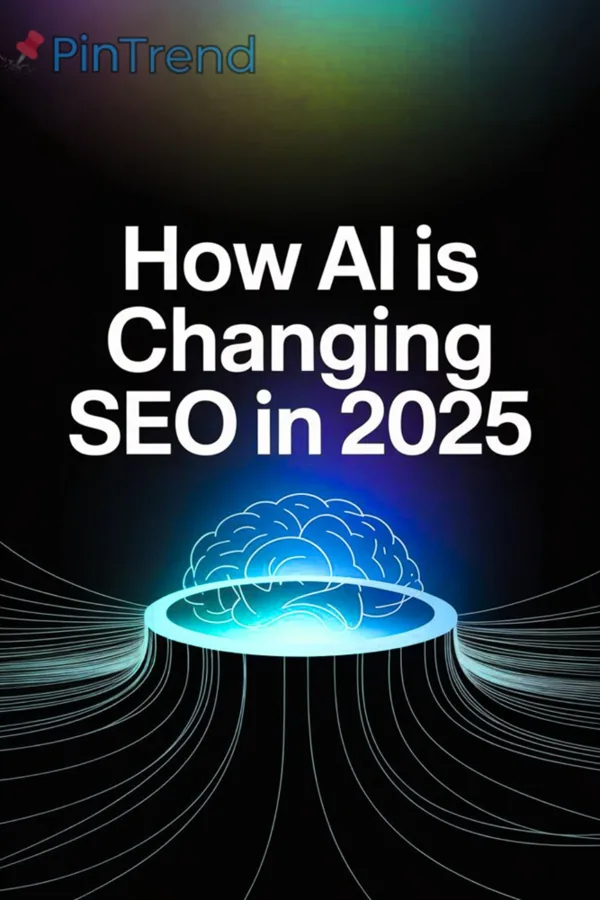Introduction
The way businesses approach search is undergoing a massive shift, and it’s clear that AI in SEO is no longer a distant trend—it’s today’s reality. In 2025, search algorithms powered by machine learning and natural language processing (NLP) are changing how websites are ranked and how people discover information online.
Simple keyword optimization tactics don’t cut it anymore. Instead, success depends on understanding search intent and delivering content that truly answers user questions. Whether it’s adapting to conversational queries, preparing for voice-driven searches, or focusing on user experience, companies that embrace these AI-driven changes will stay ahead in the evolving digital landscape.
How AI is Changing SEO in 2025 Compared to Previous Years
The biggest difference between now and a few years ago is how deeply AI is embedded in search engines. Back in 2020, RankBrain and BERT were advanced tools for natural language processing (NLP). In 2025, these models are joined by generative AI systems that interpret conversational queries with stunning accuracy.
For U.S. businesses, this shift means traditional keyword optimization is no longer enough. You need to align with search intent, not just match words. Today’s machine learning models examine patterns in user behavior—what people click, how long they stay, and where they drop off—to decide which content deserves the top spot.

The Rise of AI Search Engines and Its Impact on SEO
AI vs Traditional Search Engines
Traditional engines used indexed pages and basic algorithms. In contrast, smarter search engines like Google’s SGE and Perplexity AI rely on data-driven SEO that pulls insights from vast search data pools. Instead of delivering ten blue links, they generate synthesized answers with context.
A marketer in 2025 has to think less about ranking for a single phrase and more about appearing in personalized search results. This requires structured, detailed content that directly addresses people also ask queries.
New Search Behaviors in the USA
Americans are increasingly comfortable with conversational search. Instead of typing “best Italian restaurant NYC,” they ask, “What’s the best Italian place near me open now?” That subtle shift transforms local SEO. Optimizing your Google Business Profile and ensuring accurate reviews is now as important as content optimization on your website.
Smarter Keyword Research with AI Tools
Predictive Search Trends
Modern content optimization tools use AI to spot trends before they explode. Platforms like AnswerThePublic scrape user questions in real time, giving marketers predictive insight. For example, an SEO agency in Chicago used these insights to identify rising search intent around “AI tutors” months before Google Trends picked it up.
| Tool | Use Case | Benefit |
|---|---|---|
| AnswerThePublic | Identify question-based searches | Capture early content gaps |
| Hotjar / Crazy Egg | Track user behavior and drop-off points | Lower bounce rate |
| Competitor analysis software | See top-performing keywords | Guide SEO strategy audit |
Long-Tail and Conversational Keywords
The bread and butter of 2025 SEO are long-tail keywords and natural speech patterns. These queries may have lower volume but higher conversions because they align with local search intent and conversational queries. Optimizing content to answer them directly improves visibility in voice search optimization.

Content Creation in the Age of AI
Human + AI Collaboration
AI can generate outlines, search data insights, and even first drafts. But readers can smell generic content a mile away. That’s where human creativity steps in. A health-tech startup, for example, used AI to pull competitor analysis data, but human writers added personal stories to deliver value to the audience. The result? Engagement doubled and their bounce rate dropped by 30%.
E-E-A-T in 2025
Google’s emphasis on E-E-A-T guidelines (Expertise, Experience, Authority, and Trustworthiness) has only grown stronger.has only grown stronger. Articles that cite credible sources, provide firsthand experiences, and clearly show author expertise outperform generic AI content. This also connects directly to content relevance, which remains one of the strongest signals for search algorithms.
AI-Driven Personalization and User Experience
Hyper-Personalized Search Results
Every user now sees a slightly different SERP. A parent searching for “best tablets” will see education-focused results, while a gamer sees performance reviews. That’s AI-driven personalized search results at work.
UX Signals as Ranking Factors
User experience (UX) is inseparable from SEO in 2025. A site with slow load times, poor mobile usability, and weak page speed optimization won’t survive. Technical SEO audits combined with tools like Hotjar help brands understand drop-off points and improve conversions.

Technical SEO in an AI-Powered World
Smarter Crawling and Indexing
Search engines are now capable of machine learning-based crawling. They no longer just read HTML—they interpret structured data to understand meaning. A product page with rich schema for pricing, reviews, and availability ranks faster because AI understands its full context.
Structured Data and Schema
Structured data is the language AI speaks fluently. Sites that fail to implement schema miss opportunities in featured snippets, people also ask boxes, and voice search optimization results. If you haven’t already, now is the time to embed schema in your SEO strategy audit.
Challenges and Risks of AI in SEO
Over-Reliance on Automation
AI can tempt businesses to “set it and forget it.” But SEO needs oversight. Automated tools may suggest trends, but only human judgment can decide whether content truly delivers value to your audience.
Content Authenticity and Trust Issues
The flood of AI-generated posts in 2025 means authenticity is gold. Readers don’t just want answers; they want trust. Brands that share human voices, real case studies, and original insights stand apart. Without this, your brand risks being just another page in the AI content sea.

Future-Proofing Your SEO Strategy in 2025 and Beyond
Adapting to AI doesn’t mean abandoning the basics. U.S. businesses should:
-
Regularly audit SEO strategy to identify gaps.
-
Optimize for voice search by aligning with conversational queries.
-
Continuously optimize your Google Business Profile for local SEO.
-
Invest in technical SEO audits to keep website performance sharp.
-
Use data-driven insights from tools like AnswerThePublic to stay ahead of search trends.
Case studies already show this works. A Texas law firm doubled its leads after reworking content around question-based searches. Meanwhile, a New York bakery saw foot traffic surge when it prioritized local search intent and improved mobile usability.
Conclusion
The story of how AI is changing SEO in 2025 isn’t about replacing humans—it’s about reshaping the way search engines and people connect. AI has made search more conversational, contextual, and personal than ever before. For businesses, the path forward is clear: embrace AI tools, stay grounded in human creativity, and build strategies around user intent and data-driven SEO.
Search isn’t dying—it’s evolving. Those who adapt now will thrive in the new era of AI-powered search optimization.
Frequently Asked Questions
Can AI improve my SEO?
Yes, AI can boost your SEO by enhancing keyword research, content optimization, and delivering personalized search insights.
Is AI a threat to SEO?
No, AI isn’t a threat—it’s a tool. It changes SEO practices but creates new opportunities to rank with smarter strategies.
Can ChatGPT replace SEO?
ChatGPT can’t replace SEO. It can assist with content, but search engines still rely on ranking factors and user experience.
Will SEO get replaced by AI?
SEO won’t be replaced by AI. Instead, AI will transform how strategies are built and executed.
What is the future of SEO in 2030?
By 2030, SEO will be deeply AI-driven, focusing on voice, personalization, and real-time search behavior adaptation.


